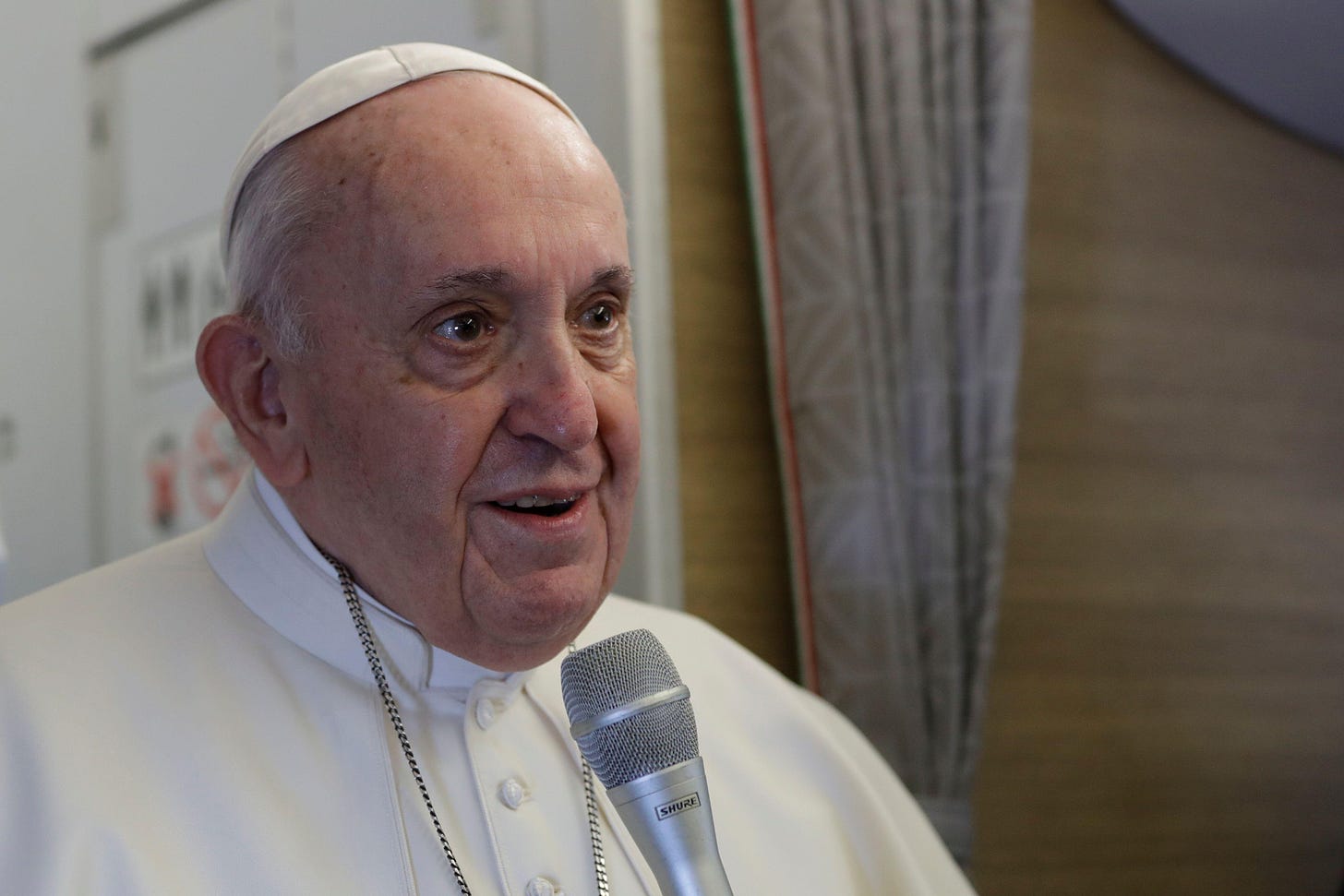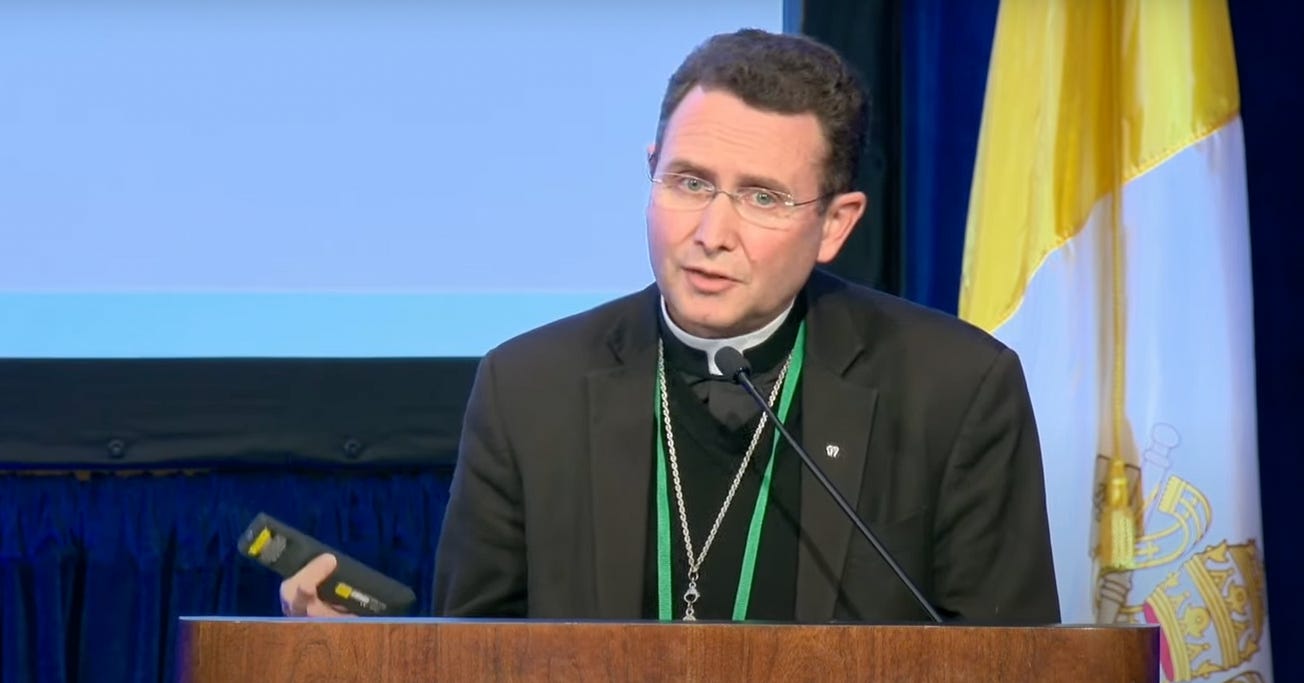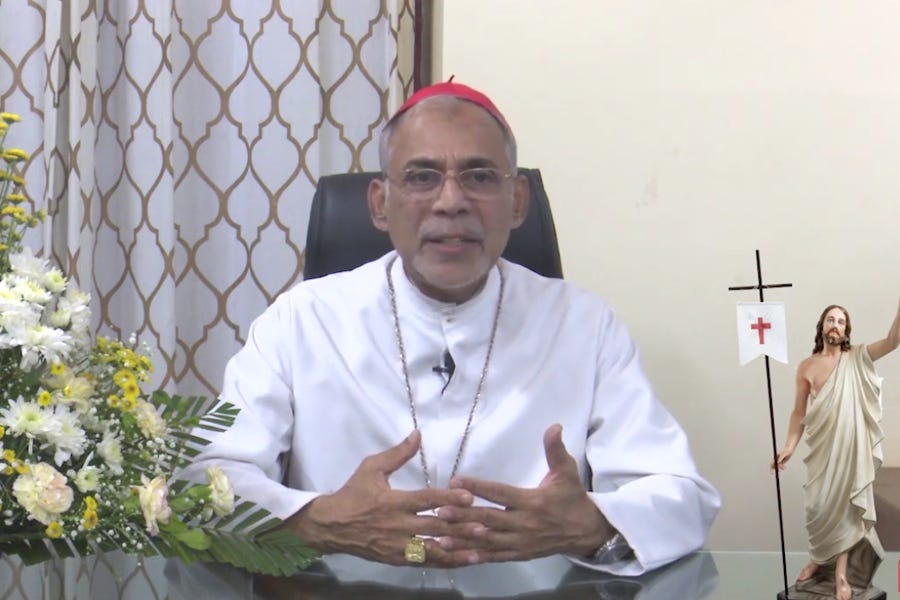Eight years into the pontificate of Pope Francis, airborne press conferences still have the power to surprise, to illuminate, and, perhaps more often, to confound.
The pope’s remarks on his return flight Monday to Rome, after a short trip to Cyprus and Greece, were no exception — while Pope Francis discussed a recent decision to accept the resignation of the Archbishop of Paris, he left many Catholics wondering what exactly he was trying to say, and what had guided his decision.

Francis accepted the resignation of Archbishop Michel Aupetit last week, announcing the decision Dec. 2, without explanation. Aupetit’s departure followed French media reports that he had an inappropriate relationship with a woman more than a decade ago — a fact the archbishop acknowledged, while insisting the relationship was non-sexual and consensual, but innapropriate — “ambiguous”, he called it.
On his flight Monday, Pope Francis offered some details about the relationship — saying the archbishop had allegedly “carassed” and “massaged” his secretary while he was still a priest. But the pope also said he did not accept Aupetit’s resignation because of what the archbishop did, but because of how people talked about it.
Pope Francis said that because of “gossip of the people responsible for reporting things, a man has lost his reputation, [to the point] he cannot govern.”
“This is an injustice,” Pope Francis said. “That’s why I accepted the resignation of Aupetit: not an altar of truth, but on the altar of hypocrisy.”
So, as the pope tells it, the archbishop’s conduct did not itself merit removal — a perspective which aligns with canon law on the subject, and tracks with Francis’ decision to appoint him in the first place, in 2018, despite the Vatican apparently knowing of the relationship.
Also according to the pope, it was an injustice that people — presumably members of the media and their sources — had gossipped about Aupetit. But that injustice became the basis for the archbishop’s ouster from office.
The pope added that sins of the flesh “are not the most serious,” reminded the press that everyone is a sinner, and chastised Catholics who expect their bishops to be sinless.
What does all that mean?
Did Pope Francis accept Aupetit’s resignation because false rumors or allegations had impeded the archbishop’s ability to govern? While a parish pastor can be removed because he has lost his good reputation among his parishioners — even if the loss of reputation is not the pastor’s fault — the pope has not previously suggested he would apply a similar standard to diocesan bishops.
In fact, if that’s what the pope meant, the decision would seem to represent a sea change for the pontiff, who has in the past defended bishops he believed to suffer under false accusations. If Francis, who has previously made a point of defying media pressure, bounced Aupetit from office because of a “gossipy” media firestorm, has he empowered episcopal critics worldwide to stir up detraction as a means of seeing their bishops fired?
Also unclear: Can the pope accurately blame Aupetit’s oft-reported failures of leadership on the archbishop’s detractors in the media?
The archbishop lost two key senior advisers this year, one in January and in one in March — well-respected priests who reportedly resigned because they had difficulty handling Aupetit’s autocratic leadership style. Those resignations came months before French media got hold of a salacious story about the archbishop’s past. So how was the media responsible?
Did the pope mean that the rumors about Aupetit’s relationship circulated among Parisian priests for months before the press got hold of it? Is that connected to the resignations among his chancery staff? Is clerical gossip really to blame for Aupetit’s downfall? Did the archbishop’s chancery detractors leak salacious-seeming information to the media — and is that what the pope had in mind?
We just don’t know. And the uncertainty points to an ongoing challenge for the Vatican: Pope Francis has promised a new Vatican approach to dealing with bishops engaged in misconduct or administrative incompetence. The Vatican has also promised transparency. But a few off-the-cuff airborne comments — a 30,000 foot view of the problem, as it were — is the kind of transparency that raises more questions than it resolves.
While the pope may not face more questions about Paris, he will continue to get questions about how and why he makes critical personnel decisions. An in-flight warning against gossip, coupled with a little je ne sais quoi on the details, is unlikely to demonstrate for many Catholics that the Vatican’s commitment to personnel management reform is a plan that will work when the rubber meets the runway.




